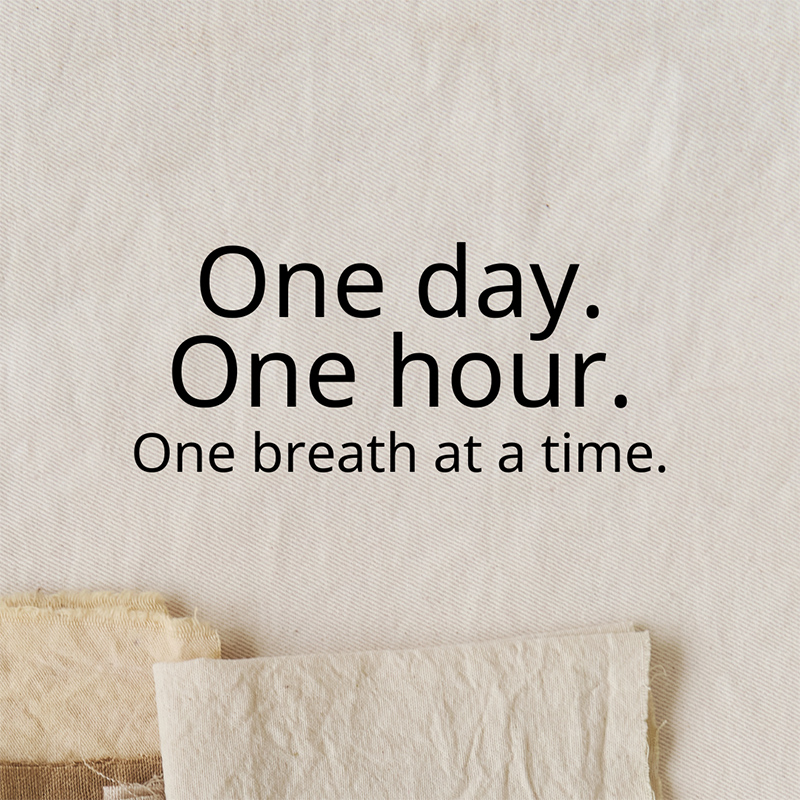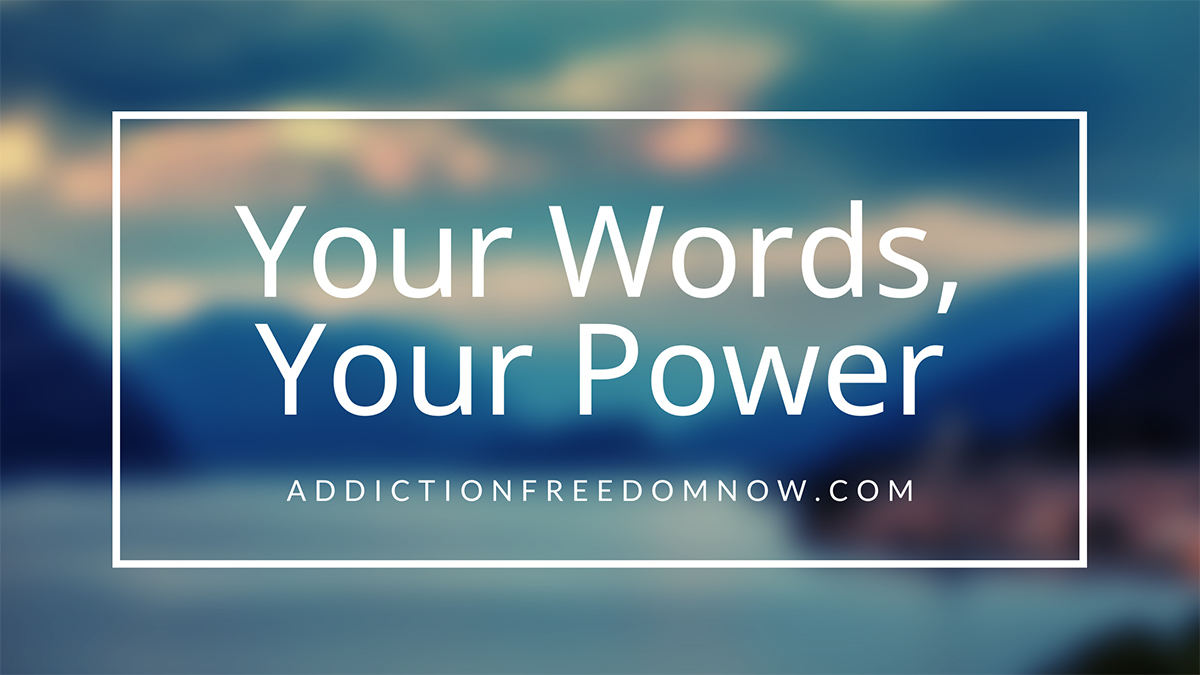A recovery mantra isn’t just a catchy phrase – it’s a lifeline. It’s that one sentence you can return to when everything feels chaotic, when doubt creeps in, or when the weight of healing feels heavy. Creating your own mantra is about tuning in, listening closely to what you truly need, and finding the words that bring you back to center. You don’t have to be a writer or a spiritual guru to do this, just honest with yourself.
Let’s explore how to craft a personal mantra that supports your recovery and keeps you grounded, one breath at a time.
What Is a Recovery Mantra?
A recovery mantra is a short, powerful phrase that helps anchor you in moments of struggle or stress. Think of it like a mental compass – it doesn’t have to be fancy or poetic, but it does need to feel true to you. Some people borrow mantras from spiritual practices or recovery programs, such as those found in our Daily Affirmations for Addiction Recovery, while others write their own from scratch. Either way, the goal is the same: to shift your mindset, re-center your thoughts, and remind you of your strength and purpose, especially when things get hard.
Unlike affirmations that are often focused on what we want, a mantra is about what we return to. It’s a reminder. A grounding force. Something you can repeat until it starts to quiet the noise.
Why Personal Mantras Matter in Recovery

There’s something deeply healing about using your own words. When a mantra comes from your personal experience, your struggles, your triumphs, your why, it becomes more than just a phrase. It becomes a tool. Anyone can recite a quote from someone famous, but a personal mantra speaks directly to your truth.
Recovery isn’t one-size-fits-all, and neither is the language that helps you through it. A mantra that connects with your heart can be the thing that keeps you from spiraling when a craving hits or when shame starts to whisper old stories. It’s about reclaiming your voice, replacing the internal dialogue that may have been shaped by pain, trauma, or addiction with something intentional and empowering.
Research also supports the power of positive self-talk in recovery. According to the National Institute on Drug Abuse, tools like cognitive reframing and repetition-based practices can play a valuable role in healing.
You don’t need to get it “perfect.” You just need it to feel honest and supportive. The more you say it, the more it becomes part of your inner script, helping you rewire the patterns that no longer serve you.
What Makes a Mantra Effective?
A good recovery mantra doesn’t need to be long or complicated. In fact, the most powerful ones are usually short and easy to remember – something you can call up quickly in a moment of stress.
But beyond simplicity, an effective mantra hits a few key notes:
- It’s grounded in the present. Instead of focusing on what you hope to be someday, it reminds you who you are right now.
- It uses positive, empowering language. Words carry energy. Your mantra should lift you, not shame or scold you.
- It feels personal. The best mantras resonate emotionally. When you say it, you should feel something shift – like you’re being reminded of your own strength or truth.
- It aligns with your values and intentions. If your goal is peace, maybe your mantra speaks to stillness. If your goal is staying sober today, maybe it focuses on that one step.
Mantras work because of repetition. The more you say it, out loud, in your head, written in a journal, stuck to your mirror, the more your mind starts to believe it. Research shows that affirmations and repeated phrases can help rewire beliefs and reduce stress, especially when they’re deeply personal. Over time, your mantra becomes part of your recovery toolkit, something you can rely on when motivation is shaky or emotions run high.
How to Create Your Own Recovery Mantra

This isn’t about writing something perfect – it’s about writing something that means something to you. Your mantra is yours. It doesn’t have to sound like anyone else’s.
Here’s a simple process to help you create a phrase that sticks with you and supports your recovery journey:
1. Start with your “why.”
Why are you in recovery? What are you working toward? Is it peace? Freedom? Reconnection? Write it down. Let your values lead the way.
2. Think about your hardest moments.
What do you need to hear when you’re overwhelmed, triggered, or questioning everything? Your mantra can be the voice that speaks calm into chaos.
3. Choose words that feel strong and safe.
Lean into words that feel comforting, empowering, or grounding, whatever you need more of. Words like “peace,” “strength,” “freedom,” “grace,” “presence,” or “truth” can be great building blocks.
4. Keep it simple and honest.
The best mantras are short, just a sentence or even a few words. “I am stronger than the craving.” “One breath, one moment.” “I choose peace.” Let it be something you want to say to yourself.
5. Try it out loud.
Say it. Write it. Whisper it when you’re anxious. If it gives you even a moment of relief or clarity, you’re onto something. If it doesn’t quite land, tweak it. Your mantra can evolve.
Your recovery is constantly unfolding, and your mantra can, too. What you need today might be different from what you’ll need in a month. And that’s okay. What matters is that your words come from you.
Examples of Personal Recovery Mantras

If you’re not sure where to start, here are some examples to inspire you. These aren’t one-size-fits-all, but they show how different a mantra can be depending on what you’re going through or what you need to remember most.
- “I am not my past.”
A reminder that your identity is not defined by what you’ve done or what’s happened to you. - “I choose recovery, even when it’s hard.”
Because it’s not always easy, but the choice matters. - “One day. One hour. One breath at a time.”
Perfect for those overwhelming moments when everything feels like too much. - “I deserve peace.”
A simple truth many people forget to claim for themselves. - “I am stronger than this craving.”
Say it when temptation shows up, say it until you believe it. - “I don’t have to go back.”
When the pull of the past creeps in, this one keeps you grounded in your progress. - “This feeling will pass.”
For emotional regulation and staying present instead of reacting. - “Progress, not perfection.”
A classic reminder that recovery isn’t linear, and that’s okay. - “My healing is my responsibility – and my gift.”
A powerful shift from feeling burdened to feeling empowered.
Feel free to borrow one if it resonates, or explore additional inspiration in our collection of Top Inspirational Quotes for Early Recovery.
Bringing in Spiritual or Philosophical Meaning (If It Feels Right)

Not everyone connects with spiritual language, and that’s totally valid. But for some, tapping into a deeper belief system can make a mantra feel even more powerful. Whether it’s rooted in faith, philosophy, nature, or ancient traditions, what matters is that it speaks to you. Incorporating mindfulness practices can also enhance your recovery journey, as discussed in our article on Using Mindfulness to Cope with Early Recovery Emotions.
Some people find comfort in using names or phrases tied to their spirituality, like “God grant me serenity” or “I surrender to something greater than myself.” Others might draw from mindfulness teachings, using words like “Be here now” or “Breathe and return.”
Here are a few spiritually or philosophically inspired mantras to consider:
- “I trust the process.”
- “Let go and let God.”
- “This moment is enough.”
- “I am connected, I am whole.”
- “Even now, I am loved.”
If none of those feel like you, no problem. Recovery doesn’t have to be spiritual to be sacred. You don’t need to force meaning, just stay open to what feels grounding. And if you are someone who draws strength from prayer or tradition, feel free to integrate that into your mantra in whatever way feels most supportive.
Making It a Daily Practice
Creating a mantra is just the beginning, the real power comes from using it. Repetition helps it sink in, especially when you’re navigating tough moments or building new habits. Think of your mantra as a tool you can carry with you, one that gets stronger the more you use it. According to the National Institute on Drug Abuse, strategies like consistent self-talk and behavioral reinforcement can be meaningful parts of the recovery process, especially when paired with other emotional regulation tools.
Here are a few ways to turn your mantra into a daily practice:
Say it out loud in the morning.
Start your day with intention. Say your mantra before getting out of bed, while brushing your teeth, or during your morning coffee.
Write it in your journal.
Repetition in writing can be just as powerful as saying it. Try writing your mantra ten times in a row, or weaving it into a longer journal entry.
Keep it where you can see it.
Sticky notes on the mirror. A lock screen on your phone. A card in your wallet. Surround yourself with your words.
Use it when you’re overwhelmed.
The next time you feel triggered or anxious, pause. Take a deep breath. Repeat your mantra. Let it ground you. For additional strategies on combating negative thoughts, refer to our guide on Moving Beyond Negative Thinking During Recovery.
Turn it into a ritual.
Incorporate your mantra into meditation, prayer, or breathwork. You can even build a short mantra practice into your evening routine as a way to reset or wind down.
Over time, your mantra becomes more than a phrase, it becomes a part of how you speak to yourself, how you cope, and how you stay connected to your recovery. And if your mantra ever stops feeling relevant, update it. Your recovery isn’t static, and your words can evolve with you.
Your Words, Your Power

At the end of the day, your recovery mantra is just for you. It doesn’t need to be perfect, poetic, or profound, it only needs to feel true. It’s a tool you can return to when your mind is racing, when your emotions feel heavy, or when you just need a reminder of how far you’ve come.
The beauty of a personal mantra is that it evolves with you. As you grow, heal, and step into new phases of your recovery, your words might shift, and that’s a good thing. What grounds you today might not be what grounds you tomorrow. Give yourself permission to rewrite, reflect, and repeat as needed.
If you’re still unsure where to start, go back to the questions: What do I need to hear right now? What truth can I return to when things feel hard?
That answer, whatever it is, is the beginning of your mantra.
And remember, you’re allowed to write your own story, one word at a time.
References
- Belmont, J. (2014, March 18). Affirmations: The why, what, how, and what if? Psychology Today. https://www.psychologytoday.com/us/blog/smart-relationships/201403/affirmations-the-why-what-how-and-what-if
- National Institute on Drug Abuse. (2020, July). Treatment and recovery. In Drugs, brains, and behavior: The science of addiction. National Institutes of Health. https://nida.nih.gov/publications/drugs-brains-behavior-science-addiction/treatment-recovery




